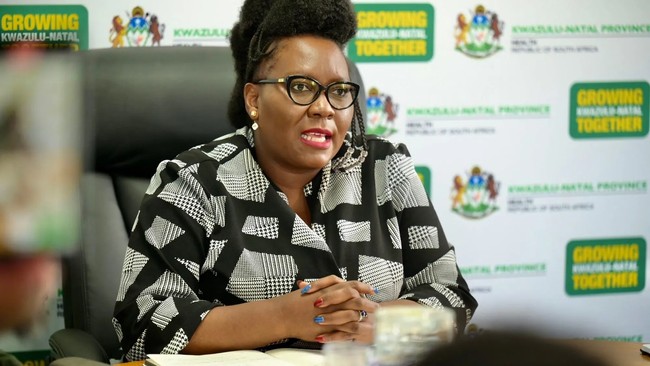In the heart of eThekwini Municipality, an escalating water crisis is not only affecting the daily lives of residents but also the vital operations of local hospitals. As authorities scramble to address the situation, health officials have stepped in with emergency measures to ensure patient care continues without compromise.
The crisis began when the municipality implemented water curtailments, which led to a significant drop in water levels across many of its reservoirs. This directly impacted local hospitals, leaving them facing severe water shortages, especially in areas situated in high-level zones. Msizi Shabalala, the acting head of Water and Sanitation in eThekwini, acknowledged the gravity of the issue but assured the public that hospitals were being prioritized to prevent any loss of life. “We have provided the hospital with 10 water tankers to ensure a continuous supply,” he stated, adding that the team was actively checking for potential leaks that could further disrupt the water flow.

Collaboration between the municipality and the Department of Health has been key in addressing the crisis. KwaZulu-Natal’s Health MEC, Nomagugu Simelane, emphasized that while the hospital had been grappling with intermittent water cuts since mid-January, the situation worsened drastically after February 3, when the facility faced complete water outages. This forced the health sector to implement alternative solutions quickly.
Contrary to circulating rumors of unsanitary conditions at the hospital, Simelane reassured the public that the situation was under control. “The hospital’s water system is tied to the municipality’s supply, so when the community faces challenges, the hospital is impacted as well,” she explained. Thankfully, the department had already put contingency plans in place after previous floods, including the installation of water reservoirs within the hospital and additional JoJo tanks around the premises. These tanks ensure that patients who are mobile can easily access water, while a dedicated team brings water to the clinical service points for those who cannot.
Simelane also outlined efforts to ensure the maternity ward had access to sufficient water for essential services such as flushing toilets and drinking. For drinking water, patients are receiving water supplied by the Gift of the Givers, ensuring the quality and safety of what is being provided. Additionally, 30 portable toilets have been placed near the hospital for patients who are able to walk, mitigating the effects of the water shortage on basic hygiene.
While these measures are alleviating the immediate concerns, the health department has had to make difficult decisions, including postponing some elective surgeries. With only five of the hospital’s seven operating theatres currently functional, elective procedures have been limited to essential cases. Simelane pointed out that four boreholes were commissioned in 2024 to help mitigate water shortages, but the arrival of a crucial water filter, expected on Saturday, has been delayed.
Despite the ongoing challenges, both the municipality and the Department of Health are working tirelessly to ensure the hospital can continue its operations with minimal disruption. The crisis highlights the severity of the water shortage in the area, but it also underscores the resilience and quick thinking of those dedicated to safeguarding public health under extraordinary circumstances.
